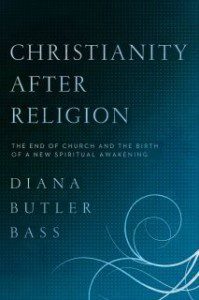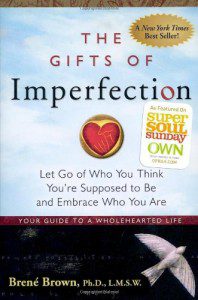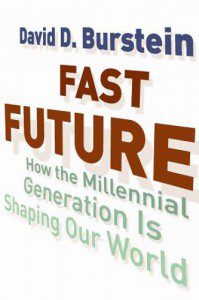The introductory post to this blog series is available here.
The highlights from Bass’ first lecture are available here and Borg’s here.
My musings on the lectures are in brackets.
Diana Butler Bass’ second lecture (of three total lectures) was titled, “Faith: From Convention to Experience.”
[This title reminds me of James Fowler’s important work on Stages of Faith, particularly the shift from Stage 3, “Conventional” faith to Stage 4, “Individuative-Reflective” faith. For more, see my post on “Everything Is Holy Now.”]
The following chart displays the framework of this lecture. Recalling her emphasis in the first lecture on the “major shift away from organized forms of faith toward experience,” the left-hand column describes the old paradigm, and the right-hand column describes the emerging paradigm.
|
Religious Questions Conventional Old Light |
Spiritual Questions Experiential New Light |
|
| Believing: What do I believe? | Creeds, dogmas, faith statements; Ideas about God; Systematic, conceptual | From ‘What’ to HOW can you be a Christian and be intelligent and be interested in science? HOW can I be a part of your church, when I can’t affirm your creed? |
| Behaving: How do I do that? | Rules, piety, techniques; Authoritative, eternal | From ‘How’ to WHAT are we going to do?: “Vocation and discernment.” WHAT is God already doing? [Alternately, “Where can we parter with what God is already doing?] |
| Belonging: Who am I? | Membership; Inheritance, choice; Propositional | From ‘Who’ to WHOSE? Whom do you love? Relational. From Membership to relationship. ‘Joining in’ instead of joining. Who am I in, with, and through God? From proposition (Who am I?) to prepositions: how we move next to and with others. [I would add and with “the Other,” following Kester Brewin’s new book.] |
| Denominations continue to ask these conventional questions (thinking that they already have the books, creeds, and membership forms to answer these questions…) | … but most people are increasingly living into different questions: relational and experiential. These are the questions of an integrated faith. [Remember her point in her first lecture about the need for “an ‘Integrated Faith’ of both mind and heart” in contrast to the twentieth-century ‘divorce’ of mind and heart between the various factions of Christianity.] |
- Those people who remain entrenched within the increasingly-obsolete paradigm on the left-hand side want to start at the top (a classic top-down, managerial hierarchy) and move to the bottom. They want to start with believing the correct creeds, faith statements, ideas, and dogmas. Then, move to behaving correctly as determined by the authority structures. And finally, if correct believing and behaving are in place, consider if an individual should be given permission for belonging.
- The emerging paradigm INVERTS the order. [To invoke another Kester Brewin book, their default tendency is to be Organic/Networked/Decentralized/Bottom-Up/Communal/Flexible/Always Evolving]. They want to start with belonging. Then behaving emerges out of the social network and matrix of belonging. Finally, believing or intellectual theories may emerge out of this bottom-up, experiential process. [Phyllis Tickle also helpfully describes this dynamic in her book The Great Emergence: How Christianity Is Changing and Why.] To consider the Occupy protests, you first show up with your tent (Belonging). Then comes behaving (assembly, consensus governance). Finally, come demands (belief). But the old-school powers-that-be are frustrated with the Occupy movement because they are operating from an increasingly-obsolete paradigm that wants the beliefs/demands first and up-front — when the protesters are operating out of a completely inverse paradigm. [Paging Dr. Freud: “Kill your father!” to clear the space to figure out what you believe. And define your ‘modus operandi’ in opposition to the previous paradigm (Oedipus!). Or, paging Dr. Jung: the ‘Shadow’ of the previous paradigm (what was neglected or repressed) becomes the basis for the next paradigm. The shadow-ground switch allows growth.]
For more details on each of these bullet-points, you can pre-order Bass’ forthcoming book Christianity After Religion: The End of Church and the Birth of a New Spiritual Awakening, which is scheduled to be released on February 14, 2012:
Stay tuned for the next installment on the highlights of Marcus Borg’s second lecture in the series.
The Rev. Carl Gregg is a trained spiritual director, a D.Min. candidate, and the pastor of Broadview Church in Chesapeake Beach, Maryland. Follow him on Facebook (facebook.com/carlgregg) and Twitter (@carlgregg).













